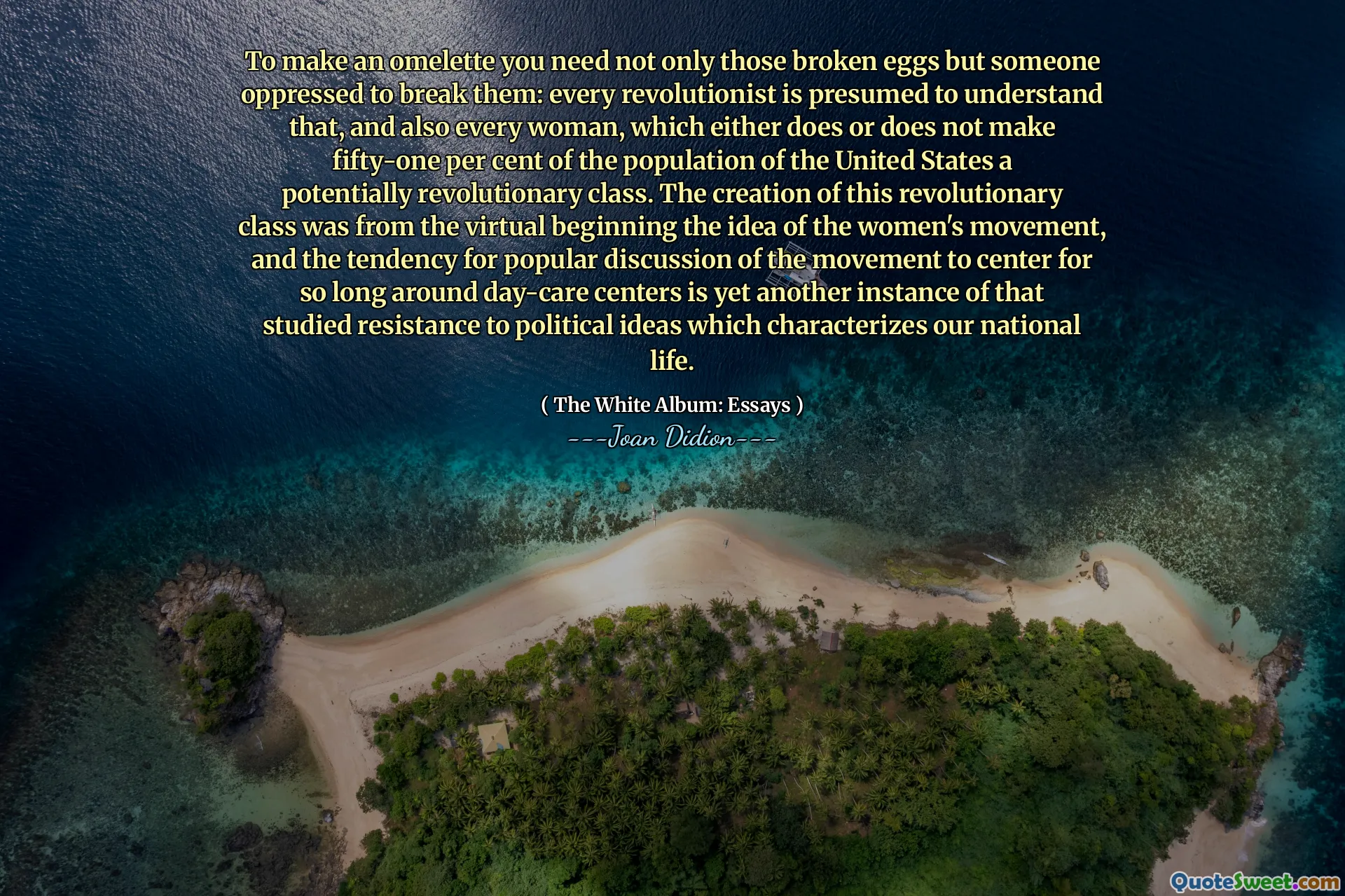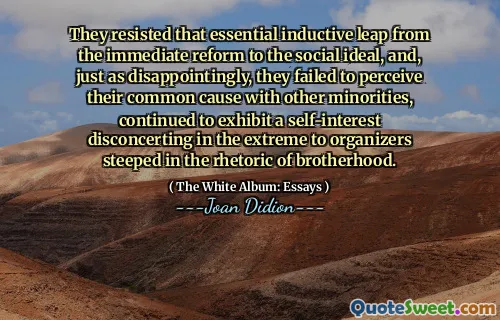
To make an omelette you need not only those broken eggs but someone oppressed to break them: every revolutionist is presumed to understand that, and also every woman, which either does or does not make fifty-one per cent of the population of the United States a potentially revolutionary class. The creation of this revolutionary class was from the virtual beginning the idea of the women's movement, and the tendency for popular discussion of the movement to center for so long around day-care centers is yet another instance of that studied resistance to political ideas which characterizes our national life.
Joan Didion, in her essay "The White Album," explores the concept of revolution and the role of women within it. She asserts that to achieve significant change, the oppressed must be acknowledged, particularly women, who make up a significant portion of the population. The reference to breaking eggs highlights the sacrifices and struggles that accompany the fight for rights and equality. Didion suggests that every revolutionist should understand the importance of recognizing these battles undertaken by women.
Additionally, Didion critiques the tendency to focus discussions around women's issues on practical matters, such as day-care centers, rather than the broader political implications of the women's movement. This observation reflects a resistance to acknowledging women's potential as a revolutionary force in society. By framing women as a revolutionary class, she invites a reconsideration of how women's struggles are perceived and emphasizes the need for deeper engagement with political ideas relevant to their experiences.











